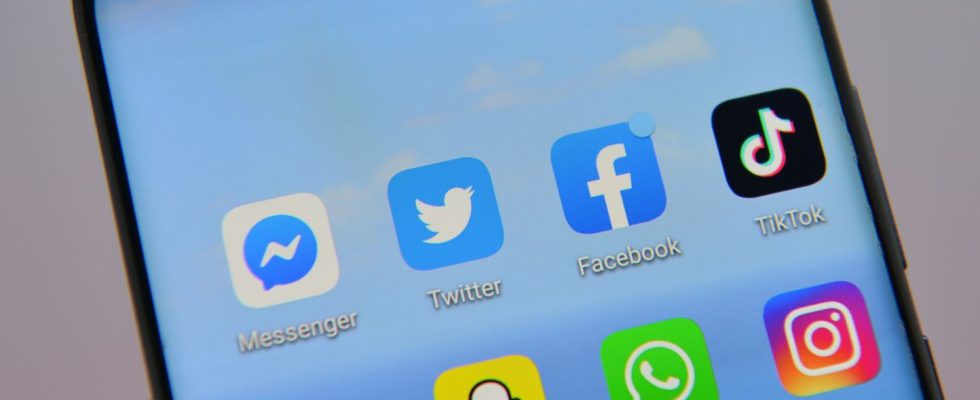“Malicious and extensive use of social networks. » The dissemination of “humiliating photomontages and diverted videos causing a climate of aggression between students”. Members of the General Inspectorate of Education, Sport and Research have delivered their first conclusions. Sent to Montpellier by Minister Nicole Belloubet, their aim is to shed light on the chain of circumstances which led to the violent attack on Samara, aged 13, in front of her school on April 2.
In the viewfinder of the members of this mission, the role of “Fisha” accounts. “Display” in verlan, in other words publish images of people, most often of a sexist and sexual nature. Young people also call them BDH (for male benders) or BDG (gadji bandeurs). The names change with the fashions but the accounts maintain the same principle: they display “nudes” taken by the young people themselves privately and often published by exes, in a spirit of revenge. Or even faked photos or videos, made with montages using tools that are increasingly accessible thanks to artificial intelligence, created by fake accounts. They have the same goal: to harm the reputation of the people displayed.
“The phenomenon is not recent, but it took on a whole new scale during confinement,” explains Yasmine Buono, specialist in digital education and cyberharassment. Accounts called for bidding wars for the department that would publish the most. The phenomenon today affects girls, as well as boys. We display people because they are not respectful (infidelity, morals considered questionable, etc.). »
“Snapchat or Telegram make it easier for a certain clandestinity”
Totally illegal, the practice is more widespread on certain social networks. “Snapchat or Telegram in particular, which more easily allow a certain clandestinity”, mentions Justine Atlan, general director of the e-Enfance association and 3018. Free, anonymous and confidential, 3018 has become, since September and the announcement of Interministerial plan to combat harassment between students, the national number for victims of digital violence.
“All applications have a reporting point,” recalls Justine Atlan. Whether you are a victim or witness of illegal content, it is possible to report it to the platform concerned or to Pharos, the platform for reporting illegal content. But we would like the apps to go further and for the 3018 to be automatically present on all the accounts of those who declare themselves to be under 18 years old. » Other online support associations exist, such as Stop Fisha. And, more generally, TikTok and Instagram have started to integrate 3018 into their reporting process. “It’s a good start, but we would like to go further to more easily help young victims of digital violence. »
“The youngest are not aware of their actions”
“The problem is the response. Because behind these Fisha accounts, questions of reputation and honor are at stake. Her own, but also that of a family or a neighborhood, continues Yasmine Buono. I see that young people, and particularly the youngest, middle school students, are completely unaware of their actions and fall into ultra-violence. » For this expert, France has not yet become aware of the extent of the dangers of digital technology, unlike Germany, Canada or the Nordic countries. “The legislative arsenal exists. We have the laws to punish, but we are behind in digital education. We cannot react every time, as in the Samara affair. We have not realized that there are no boundaries between real life and online life, continues Yasmine Buono. We gave phones to young people. We must educate them about their responsibilities, about the consequences of their actions. Explain to them that they have rights but also duties. What we call digital citizenship is a concept that is poorly understood today. »
“Teachers not trained in these problems”
“It’s a shared responsibility. That of platforms which regulate too little. Those of parents who are mostly overwhelmed and this is normal: in the digital age, how can we control a screen? Children are confronted daily with recruitment, such as that of influencers, or with situations they have never even heard of. And finally, that of the public authorities.”
Our file on cyberharassment
“After what happened in Samara, I asked my daughter if she knew about these kinds of accounts,” explains 20 minutes Sophie, the mother of a 4th grade student. She told me “yes, of course”. While we share a lot, I was taken aback when she gave me this answer. She told me so naturally that I understood that children were regularly confronted with this kind of thing.” In the many schools where she works, Yasmine Buono meets teachers who are “alert, but many are helpless because they are not trained to respond to these problems. And there is an urgency to do it.”

